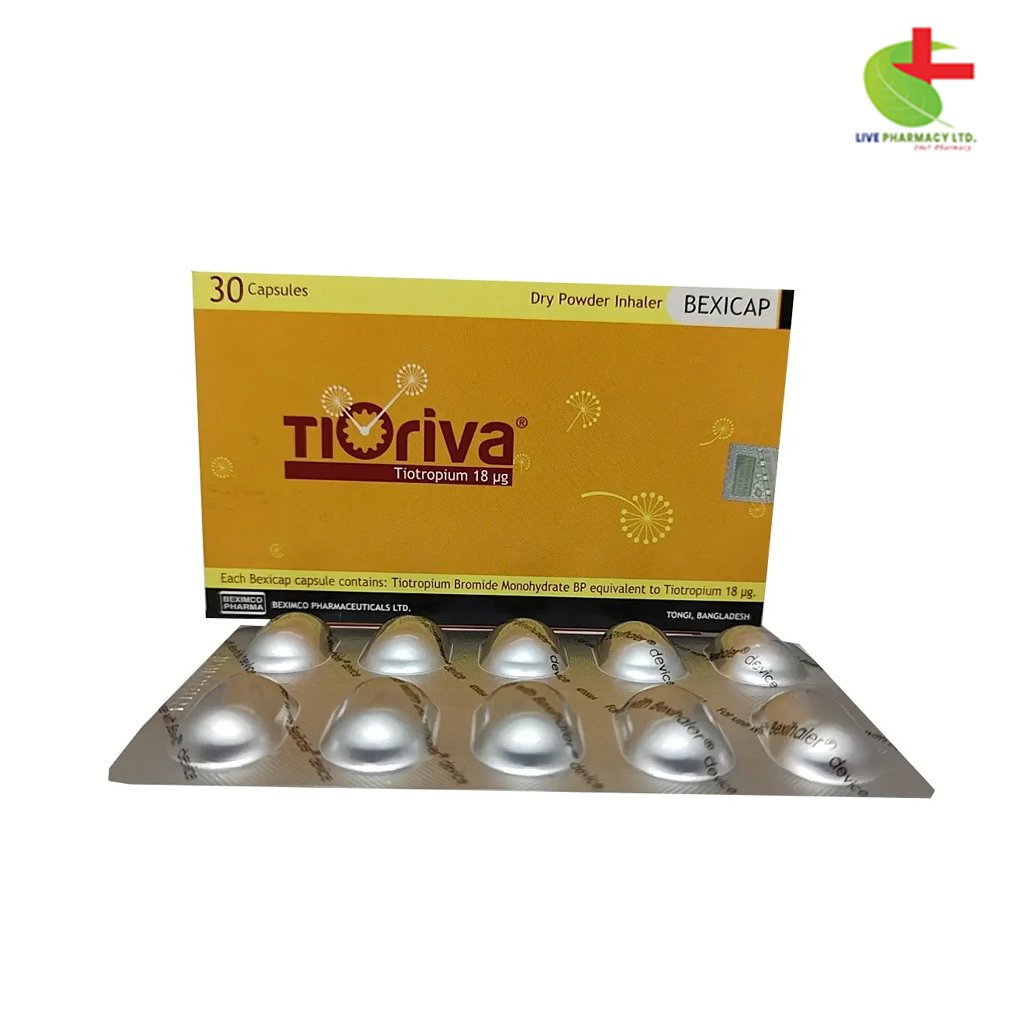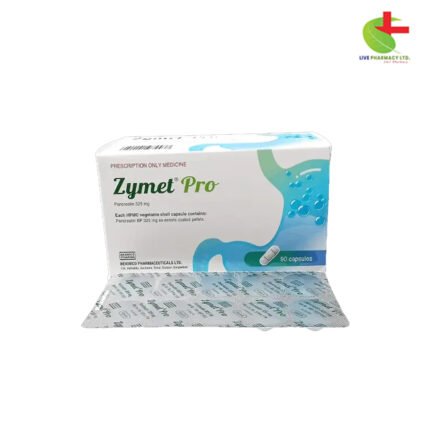Tioriva 18
80.00৳ Strip
- Indication: Long-term management of bronchospasm in COPD, including chronic bronchitis and emphysema.
- Pharmacology: Long-acting anticholinergic that targets M3-muscarinic receptors for effective, prolonged bronchodilation.
- Administration: Once-daily inhalation using a designated device.
- Precautions: Use cautiously in patients with narrow-angle glaucoma, prostatic hyperplasia, or bladder-neck obstruction; not for those with hypersensitivity to anticholinergics.
 Brand
Brand
|
Beximco Pharmaceuticals Ltd |
|---|---|
 Generics
Generics
|
Tiotropium |
 Type
Type
|
Capsule |
Indications
Tioriva is prescribed for the long-term management of bronchospasm linked to chronic obstructive pulmonary disease (COPD), including chronic bronchitis and emphysema.
Pharmacology
Tiotropium is a long-acting antimuscarinic agent, commonly known as an anticholinergic. It interacts with various muscarinic receptor subtypes (M1 to M5) but primarily targets M3-receptors in the airways. This interaction leads to bronchodilation by inhibiting smooth muscle contraction. Tiotropium’s antagonistic effects are competitive and reversible, as demonstrated in both human and animal studies. Preclinical research shows that Tiotropium effectively prevents methacholine-induced bronchoconstriction for over 24 hours, with a predominantly site-specific bronchodilation effect upon inhalation.
Dosage & Administration
For adults over 18 years: The recommended dosage of Tiotropium Dry Powder Inhaler is 18 mcg (one capsule) once daily, using the designated device. The contents of the Tiotropium capsules are meant exclusively for oral inhalation with the provided device.
No dosage adjustments are necessary for elderly, hepatic, or renal-impaired patients. However, patients with moderate to severe renal impairment should be monitored closely for potential anticholinergic effects.
Interactions
An interaction study involving Tiotropium (14.4 mcg intravenous infusion over 15 minutes) and cimetidine (400 mg three times daily) or ranitidine (300 mg once daily) was conducted. Cimetidine co-administration led to a 20% increase in the AUC 0-4 hours and a 28% decrease in Tiotropium’s renal clearance, with no significant change in Cmax or urinary excretion over 96 hours. Ranitidine co-administration did not affect Tiotropium’s pharmacokinetics.
Contraindications
Tiotropium is contraindicated in individuals with a known hypersensitivity to atropine or its derivatives, including ipratropium, or any component of this product.
Side Effects
The most frequently reported side effect is dry mouth, which is typically mild and often resolves with continued use. Other potential anticholinergic side effects include constipation, increased heart rate, blurred vision, glaucoma, urinary difficulty, and urinary retention.
Pregnancy & Lactation
Pregnancy Category C: There are no sufficient and well-controlled studies in pregnant women. Tiotropium should be used during pregnancy only if the potential benefits outweigh the risks to the fetus. The safety of Tiotropium during labor and delivery has not been established.
Precautions & Warnings
As an anticholinergic agent, Tiotropium may exacerbate symptoms of narrow-angle glaucoma, prostatic hyperplasia, or bladder-neck obstruction. It should be used with caution in patients with these conditions.
Overdose Effects
High doses of Tiotropium may lead to anticholinergic symptoms. No systemic anticholinergic effects were noted after a single inhaled dose of up to 282 mcg in healthy volunteers. However, a study with 12 volunteers showed bilateral conjunctivitis and dry mouth following repeated daily inhalations of 141 mcg.
Therapeutic Class
Anticholinergic bronchodilators
Storage Conditions
Tiotropium Dry Powder Inhaler capsules should not be ingested. Store them away from direct sunlight and heat at temperatures below 30°C. Keep out of reach of children.













Reviews
There are no reviews yet.